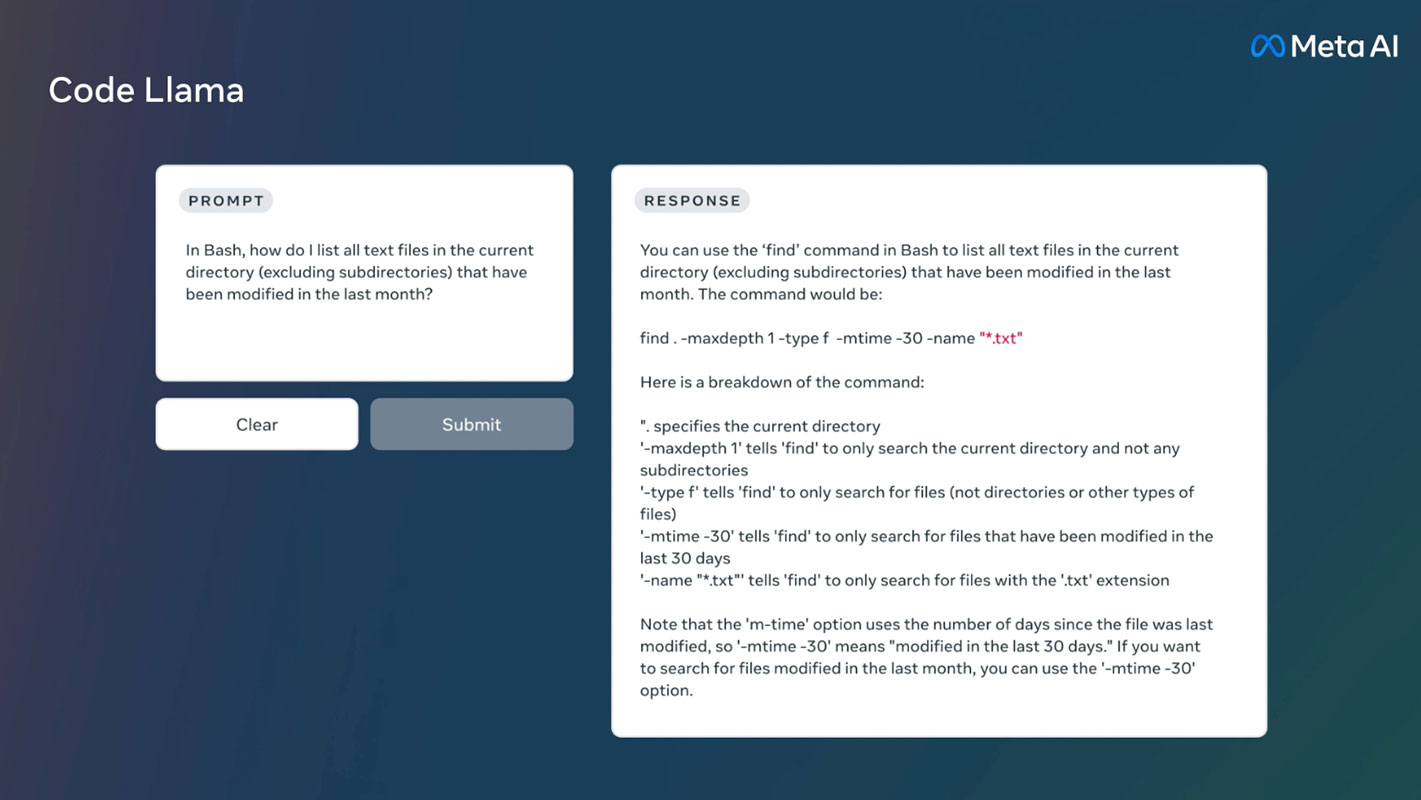Meta, an industry-leading tech behemoth, has taken a meaningful step forward by introducing their cutting-edge AI coding tool, Code Llama. Harnessing the remarkable capabilities ingrained within the Llama 2 large language model, Code Llama is a dynamic and robust answer to the challenges of code generation and precision debugging in the programming world. Meta’s visionary creation showcases its commitment to pushing boundaries and signifies a substantial shift in how coding is approached. With its fusion of ingenious innovation and refined sophistication, Code Llama is poised to redefine and revolutionize the coding landscape, setting an exemplary standard for the harmonious synergy between artificial intelligence and programming expertise.

Meta Llama Revolutionizes AI Coding Tools
Code Llama represents a significant stride towards streamlined coding practices. It harnesses the prowess of Meta’s Llama 2, utilizing its expansive language understanding to generate code strings and effectively debug code fragments. Its brilliance lies in its versatility—it can craft code based on prompts or seamlessly debug existing code segments. Meta’s dedication to excellence is evident in the tool’s two specialized versions: Code Llama-Python and Code Llama-Instrct.

Tailored Solutions for Varied Needs
Code Llama-Python is designed to cater to Python-centric coding requirements, while Code Llama-Instrct brings the remarkable ability to comprehend natural language instructions related to coding tasks. It’s important to note that each version of Code Llama serves specific purposes. Meta advises against using the base Code Llama or Code Llama-Python for natural language instruction studies.
Meta’s Vision: Elevating Developer Workflows
In an insightful blog post, Meta highlights the growing trend of programmers leveraging LLMs (Large Language Models) for many tasks, from code creation to meticulous debugging. The overarching objective is to enhance developer workflows, enabling them to focus more on their roles’ creative and human-centric dimensions.
Code Llama’s Exceptional Performance: A Glimpse into the Benchmarks
Meta’s Code Llama has exhibited unparalleled performance in benchmark testing, outshining publicly available LLMs. While specific model names weren’t disclosed, Code Llama achieved a remarkable score of 53.7 percent on the HumanEval code benchmark. Notably, it excelled in accurately translating textual descriptions into functional code—a testament to its prowess.
Empowering Low-Latency Projects: Code Llama’s Versatility
Meta’s dedication to versatility shines through in Code Llama’s offerings. The tool is available in three sizes: 7B, 13B, and 34B parameters. The most minor iteration, equipped to fit on a single GPU, caters to projects with low-latency demands. This demonstrates Meta’s commitment to providing coding solutions tailored to diverse project needs.
A Legacy of Code Generators: Industry Landscape
Code generators have cemented their place in developer arsenals over time. GitHub’s Copilot, empowered by OpenAI’s GPT-4, expedites code writing and verification. Amazon’s AWS boasts CodeWhisperer, a tool capable of writing, reviewing, and updating code. Even Google has entered the fray with AlphaCode. However, the uniqueness of Meta’s Code Llama lies in its refined capabilities and comprehensive approach.
Navigating Legal Complexities: Copyright Concerns
In a twist of legal fate, Microsoft and OpenAI, the parent companies of GitHub, are facing legal action for alleged copyright violations stemming from Copilot’s ability to reproduce licensed code. This scenario underscores the intricate legal landscape in which AI coding tools operate.
Meta’s Multifaceted Offering: Diverse Models of Code Llama
Meta’s commitment to innovation extends to its diverse range of Code Llama models. These models, equipped with varying parameters, cater to distinct serving and latency needs. The 7B model, adept at single-GPU serving, is complemented by the 34B model, delivering exceptional results and superior coding assistance. The 7B and 13B models, designed for low latency, excel in real-time code completion tasks.
Embracing the Future: Code Llama’s Evolving Journey
Meta’s relentless pursuit of excellence is evident in its continuous refinement of Code Llama. The company has further fine-tuned Code Llama by introducing specialized variations: Code Llama – Python and Code Llama – Instruct. These variations enhance the tool’s adaptability and broaden its spectrum of applications.
FAQs
1. What is Code Llama?
Code Llama is Meta’s AI coding tool built on the Llama 2 large language model. It generates new code and debugs human-written code, enhancing developer workflows and efficiency.
2. How does Code Llama operate?
Code Llama leverages the capabilities of Llama 2 to create code strings from prompts and effectively debug code fragments. It comes in specialized versions, including Code Llama-Python and Code Llama-Instrct, each serving specific coding needs.
3. How does Code Llama’s performance compare?
Code Llama’s exceptional performance is evident in benchmark tests, where it outperformed publicly available LLMs. It scored 53.7 percent on the HumanEval code benchmark, showcasing its ability to translate text descriptions into functional code.
4. What are the different sizes of Code Llama?
Code Llama is available in three sizes: 7B, 13B, and 34B parameters. Each size caters to distinct serving and latency needs. Smaller models are suitable for low-latency projects, while larger models offer superior coding assistance.
5. What makes Code Llama unique in the coding tool landscape?
Code Llama’s uniqueness lies in its refined capabilities and specialized versions. Unlike other tools, Code Llama-Python and Code Llama-Instrct cater to specific coding requirements. Meta’s commitment to innovation and developer efficiency sets Code Llama apart in the industry.
Wrap Up
In the swiftly evolving realm of coding tools, Meta’s Code Llama emerges as a transformative force fueled by innovation and efficiency. By leveraging the potency of the Llama 2 large language model, Code Llama reimagines coding dynamics through its prowess in generating and debugging code. Its capacity to craft code strings from prompts and meticulously debug existing code segments underscores Meta’s commitment to enhancing developer workflows.
With tailored versions such as Code Llama-Python and Code Llama-Instrct, Meta showcases its dedication to catering to diverse coding needs. This tool’s standout performance in benchmark tests and its ability to translate textual descriptions into functional code reinforce its significance. As Meta continues to refine and expand Code Llama’s horizons, the coding landscape stands poised for a paradigm shift driven by Meta’s unwavering vision and ingenuity.

Selva Ganesh is the Chief Editor of this Blog. He is a Computer Science Engineer, An experienced Android Developer, Professional Blogger with 8+ years in the field. He completed courses about Google News Initiative. He runs Android Infotech which offers Problem Solving Articles around the globe.



Leave a Reply